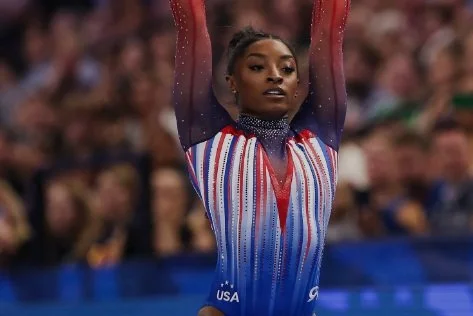The Importance of Positive Mental Health in Women’s College Gymnastics
Written by: Jonathan Merlin
In the summer of 2021, Simon Biles famously dropped out of the Tokyo Olympics to prioritize her mental health. Biles and Naomi Osaka, who stepped away from the French Open, have shined a light on a growing issue our athletes are facing today. At MK Hustle, we are lucky enough to represent many great female athletes in numerous sports. I was able to sit down with both Emma Wehry, a gymnast at West Virginia University, and Addie Gallun, a gymnast from the University of Wisconsin-Eau Claire, to discuss mental health in college gymnastics. Both Addie and Emma have overcome their challenges with mental health and now use their platforms to help others who are struggling.
Both athletes explained the importance of using social media platforms to spread positivity and create a safe community. Addie specifically mentioned how she routinely hosts live streams on Instagram as a safe space for her 50,000+ followers to discuss mental health. Furthermore, she uses her story to spread positive affirmations and positive notes of encouragement to her followers. Additionally, Emma noted that as a rising junior, she hopes to serve in a more leadership role and use her mental health experience to help her teammates through similar struggles.
I was curious to ask Addie and Emma why mental health is so prominent in gymnastics, more so than in other sports. Both girls immediately mentioned the side-by-side comparison between teammates. The girls explained that coaches, at all levels, will routinely compare teammates against each other with regard to their weight or skills. Not only do these comparisons pit teammates against one another and destroy the team aspect of the sport, but they also cause severe mental health issues for the athletes, such as eating disorders and anxiety.
Both athletes were strong advocates for specific techniques to help those struggling with mental health. For athletes, both Emma and Addie supported going to a sports psychologist to help with breathing and focus-driven exercises to increase performance. They explained how crucial it is for athletes and other students to learn what mental health resources are available at their schools. Additionally, both gymnasts voiced the importance of talking to someone who knows little about your sport to help ease the mind off the gym. Emma explained how easy it is for young gymnasts to get consumed by gymnastics and how important it is to talk to friends and family outside of sports or pick up additional responsibilities like a job.
Here at MKH, we want to do our part to destigmatize mental health and help our athletes become comfortable discussing the importance of mental health. Thank you, Addie and Emma, for sharing your stories and advice.

